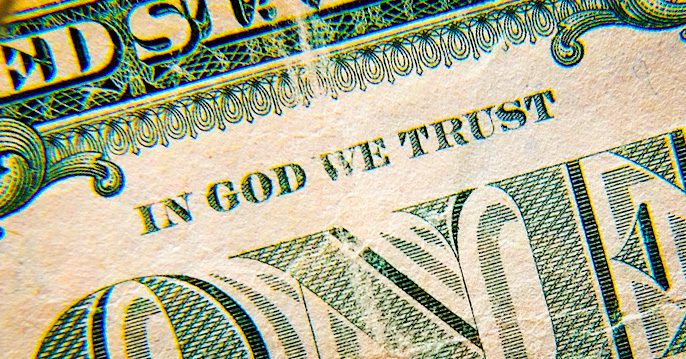View by Topic
Recent Articles
-
Congress Blocks California’s Gasoline Car BanSaturday, May 31st, 2025
-
EPA Will Keep Current Limits for “Forever Chemicals” in Drinking WaterSaturday, May 24th, 2025
-
Court Indefinitely Pauses SEC Climate Rule LitigationSaturday, May 17th, 2025
-
Maryland is About to Regulate Mold But is the Cart Before the HorseSaturday, May 10th, 2025
View by Month/Year
“Green Building Law Update” Headlines
Recent Articles & News from
Stuart Kaplow’s blog
at GreenBuildingLawUpdate.com
- Congress Blocks California’s Gasoline Car Ban: A Legal and Policy Analysis June 1, 2025
- EPA Will Keep Current Limits for “Forever Chemicals” in Drinking Water May 25, 2025
- Court Indefinitely Pauses SEC Climate Rule Litigation May 18, 2025
- Maryland is About to Regulate Mold: But is the Cart Before the Horse? May 11, 2025
Subscribe to the Green Building Law Update!
Stuart Kaplow brings his expertise and extensive experience to the table with his unique digital publication, "Green Building Law Update". Subscribers receive regular updates to keep them informed about important issues surrounding Environmental Law, Green Building & Real Estate Law, as well as the emerging demand for Environmental Social Governance (ESG).
Get fresh content through the lense of Stuart Kaplow's cutting-edge expertise, innovative commentary and insider perspective. Don't miss another issue! Subscribe below.

In God We Trust Wins 9 – 0
The Supreme Court issued several decisions last week at the conclusion of its term, some split 6 – 3 along ideological lines, but it was a 9 – 0 unanimous decision, receiving little mass media attention that may impact the largest number of Americans when the Justices protected religious pluralism and expressly guarded against inequality through the First Amendment guaranteed right of “free exercise” of religion.
We have often blogged about the existential crisis of inequality that today encompasses a broad range of social challenges for businesses but also offers opportunities for companies to thrive through improving the well being of everyone they impact including their employees, but ..
Gerald Groff is an Evangelical Christian in Lancaster, Pennsylvania, who believes for religious reasons that Sunday should be devoted to worship and rest. In 2012, Groff took a mail delivery job with the United States Postal Service. Groff’s position did not involve Sunday work, but that changed after USPS began Sunday deliveries for Amazon. Groff received “progressive discipline” for failing to work on Sundays, and he eventually resigned. Groff sued under Title VII of the Civil Rights Act of 1964, asserting that USPS with more than 500,000 employees could have accommodated his Sunday Sabbath practice “without undue hardship on the conduct of [USPS’s] business.”
Title VII of the Civil Rights Act of 1964 makes it unlawful for employers “to fail or refuse to hire or to discharge any individual, or otherwise to discriminate against any individual with respect to his compensation, terms, conditions, or privileges [of] employment, because of such individual’s .. religion.”
Last week in Groff v. Dejoy, Postmaster General, the Supreme Court issued a unanimous decision expanding rights at work. The High Court held Title VII requires an employer that denies a religious accommodation to show that the burden of granting that accommodation would result in substantially increased costs in relation to the conduct of its particular business, in this instance a business with more than half a million employees in over 31,000 postal facilities (.. so, hard to imagine the undue hardship). That is, clarified by this ruling “undue hardship” in Title VII means what it says, and in this instance revived Gerald Groff’s case remanding to the lower courts to resolve whether an undue hardship would be substantial in the context of USPS’s business in the commonsense manner that it would use in applying any such test. And this is now the test in virtually every employment circumstance for employers with 15 or more employees.
Context is important in this application of a Constitutional right. As we approach the July 4th holiday, more than 200 years ago, the United States federal government was the first national government without officially stated endorsed religion. Although, make no mistake, America’s origins are deeply religious with many early settlers and later colonists fleeing religious persecution.
Balance that history with the fact that the official motto of the United States “In God We Trust” which first appeared on the 1864 two cent coin, proclaims that the political and economic prosperity of the nations is in God’s hands. The choice of the word “trust” is considered by many to be significant, meaning more than something intellectual and even emotional; to entrust is not only that we believe in God, but also more than that. And it cannot be lost on anyone that the motto is on every dollar bill.
Pollsters tell us in 2023 most Americans consider themselves religious or spiritual. Christianity is the predominant religion. According to Gallup, 58% of Americans pray often, although, with changing practices (e.g., online religious services), the majority of Americans do not now attend a house of worship regularly.
And modern day religious leaders, from Orthodox Jews to Catholics have made clear that dollars with that motto facilitate giving to charity, where America is the most generous country.
Charity carried out selflessly may be an end, but the means is more than one Christian’s sabbath observance in this instance, it is also Muslim women wearing a hijab, a Jewish man wearing a yarmulke, maybe employees who refuse vaccines, and much more.
Beyond matters of complying with the law and associated risk management, including that businesses not embracing religious rights in a country where religion is so engrained, should be on notice they will now under this new standard face legal challenges, many businesses have found other benefits of accommodating religiosity:
Enhanced Diversity and Inclusion: Accommodating religious rights in the workplace acknowledges and respects the religious beliefs and practices of employees and stakeholders, creating a more inclusive and welcoming environment. This can lead to increased employee satisfaction, engagement, and productivity. That diversity contributes to better governance and broader exchange of ideas in business decision making.
Improved Employee Well Being: When individuals are welcomingly encouraged to practice their religion without discrimination or undue burden, they experience greater job satisfaction and reduced stress levels. This, in turn, can lead to better mental health and work life balance.
Strengthened Employee Engagement: Accommodating religious rights demonstrates an organization’s commitment to its employees’ well being and values. It fosters a sense of belonging and loyalty among employees, which can boost employee engagement and motivation. Engaged employees are more likely to be productive, innovative, and dedicated to their work.
Increased Talent Attraction and Retention: Organizations that embrace religious diversity and offer reasonable accommodations are more likely to attract and retain a diverse pool of talented employees. Potential job seekers and other stakeholders often consider an organization’s commitment to diversity and inclusion when making decisions. By accommodating religious rights, companies can tap into a broader and deeper talent pool and gain a competitive edge.
Positive Reputation and Brand Image: Embracing religious diversity and accommodating religious rights can contribute to a positive reputation and brand image for an organization. When a company is seen as inclusive and respectful of diverse religious beliefs, it can enhance its standing in the eyes of customers, investors, and other stakeholders. This positive perception can lead to increased customer loyalty and shareholder confidence.
The application of “In God We Trust” extends beyond a 9 – 0 vote of the coequal Supreme Court and being the motto on our currency, it represents our cultural heritage, individual religious freedom, moral framework, and the unity of the American people. While some controversy surrounding its use exists with respect to the separation of church and state, understanding and respecting that religious rights are intertwined in the phrase is essential. By embracing its message to foster equality and religious freedom, we can continue to uphold the principles of equality upon which our country was founded while businesses evolve and thrive embracing the changing needs of employees and the perspectives of their stakeholders.
A live webinar “Greenwashing: How to Mitigate Your Risk” 30 talking points in 30 minutes, Tuesday, July 25 at 9 am ET presented by Stuart Kaplow and Nancy Hudes on behalf of ESG Legal Solutions, LLC. The webinar is complimentary, but you must register here.









